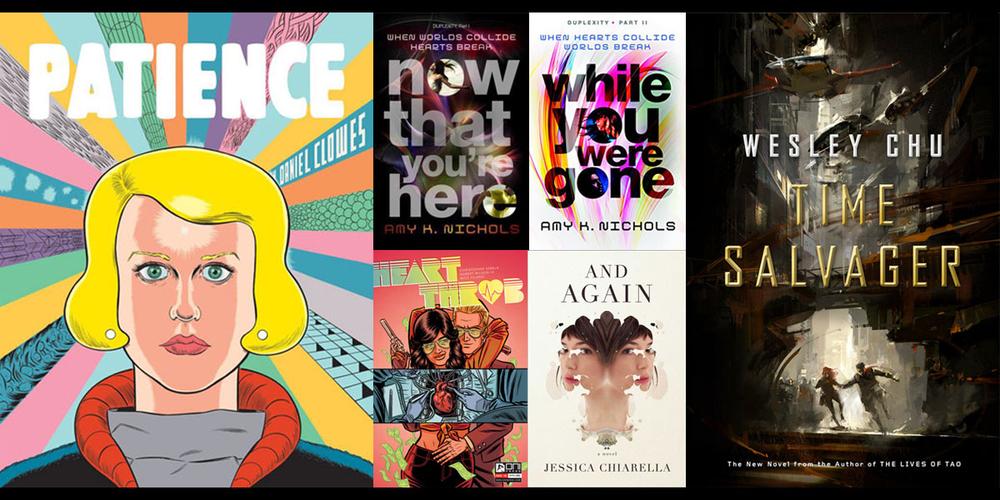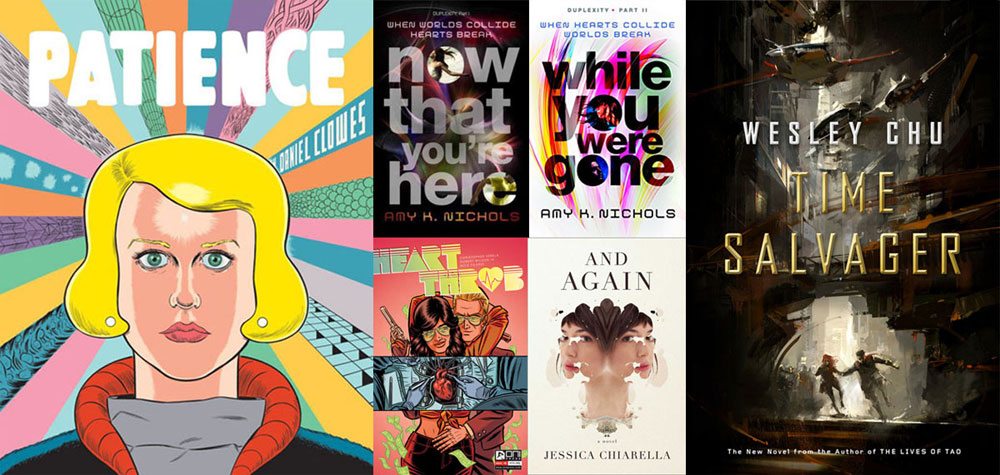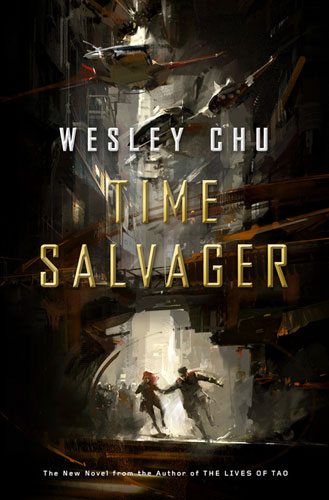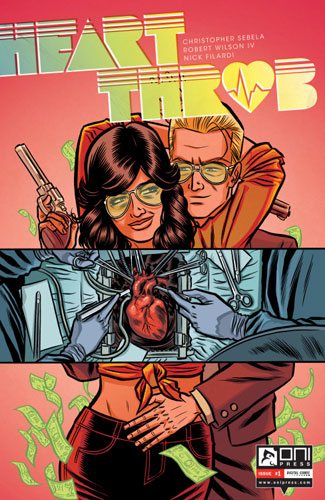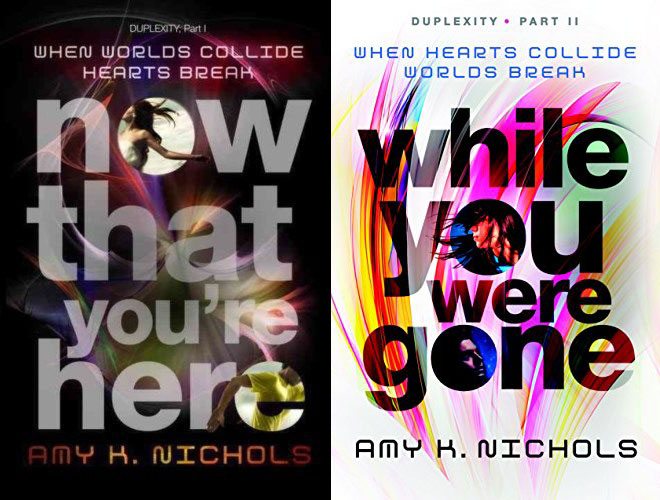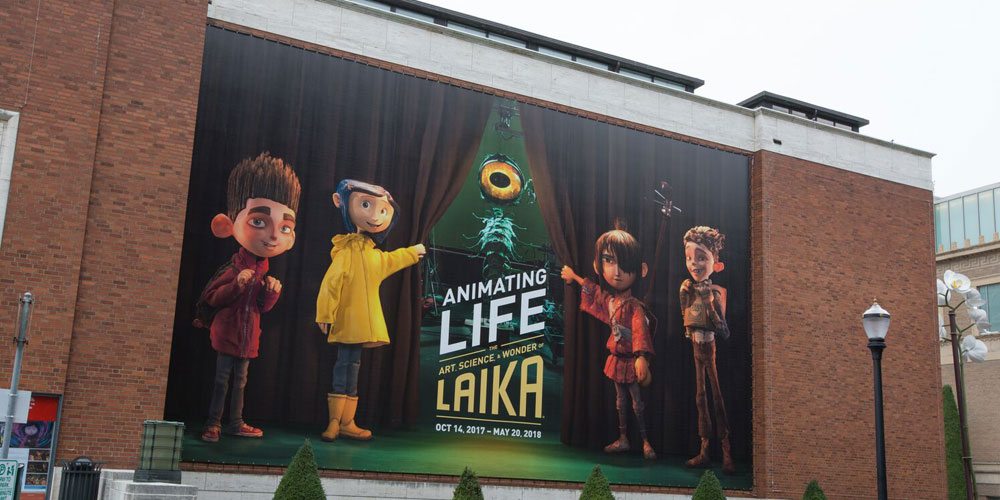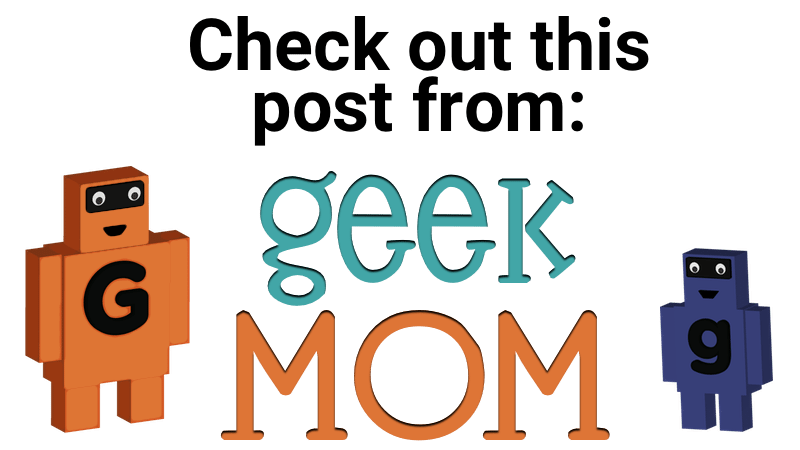I’ve always loved time travel stories, although I have to admit that my own use of time travel would probably be most like the dad in that movie About Time: when asked what he did with his ability to time travel, he said mostly he read a lot of good books. In my case, I’d at least be able to read the stack of books that I felt fit in a particular theme within the week so that I could write them all up instead of putting them in my “write this up when I have enough books of this theme” piles. But I can’t time travel, so I’m stuck with what I’ve finished.
This week’s Stack Overflow has books about double lives—in some cases, there’s time travel involved, and in some cases it’s a different sort of second chance. I’ve got another batch of time travel books after this one is done, but that’ll have to wait for … the future.
The 26th century is not a pleasant place. Sure, humanity has expanded into space and figured out time travel, but it’s one of the few things still keeping civilization running. Highly trained “chronmen” are sent back in time to retrieve resources, all without altering the timeline or breaking time laws, which usually means retrieving something just before it was about to be destroyed anyway. James Griffin-Mars, one of the most experienced chronmen, has just broken the first Time Law: he has brought somebody back from the past.
Sometimes ChronoCom has to pay the bills—so they take on missions for corporations. During one such mission, James is tasked with retrieving some equipment from a floating military base from the last 21st century—the peak of human achievement. When he gets there, something feels off; he does retrieve the equipment, but also brings back Elise Kim, a biologist. Then, of course, the authorities are after him—and you can only hide for so long from the corporations and ChronoCom.
The time travel in this book isn’t fully explained, but there are certain rules that get filled in as you read. The Time Laws, however, are human-made regulations, not necessarily physical laws. The consequences of breaking them were unknown, because nobody had done it before. Chu’s picture of the future is pretty bleak—things start falling apart not too long from now. But it’s also something of a cautionary tale: it feels like a warning that we in the early 21st century should heed.
It’s also just a fast-paced sci-fi tale with cool technology and action scenes, an it’s a bit of a whodunnit with some mysteries to unravel. It does feel like it ends at a point where not all of the loose ends are totally tied up—but I see that there’s a sequel coming this summer. I think my favorite part of this book was just the culture surrounding time travel—the traditions and laws and superstitions that had accrued over its history.
Daniel Clowes is not known for science fiction. His comics tend to be be set in the real world: his characters seem to be mostly sort of miserable, even when they’re happy. Their conversations seem mundane, but Clowes captures the second-guessing and uncertainty running through everyone’s heads while they interact with each other.
Patience, however, is about time travel. And love. And murder.
Jack and Patience are newly married, and things are a bit rough: he’s out of a job (and has been lying about it), and they’ve just found out that Patience is pregnant. But they’re happy and in love and things are going to work out—until he comes home and finds her on the living room floor. The police arrest him, and by the time he is released, the trail has gone cold. He spends the next 17 years trying to track down the killer himself, with no luck… until he gets a tip about somebody who’s figured out time travel. So Jack travels back in time, back to when Patience was a teenager. He figures, if he can piece together the clues to figure out who the murderer was, he can stop it before it ever happens, securing a happy life for her, his past self, and his unborn child.
The time travel here is barely explained at all, and it’s only incidental to the story. Because even in this sci-fi tale, Clowes still focuses on what he does best: the uncomfortable interactions between people, internal monologues, misdirected passions. As Jack’s entire life focuses on undoing a single moment, he becomes increasingly isolated from everyone but Patience. But even then, he isn’t interacting with her so much as observing her—he begins to understand her more and more, witnessing the life that made her into the person he eventually fell in love with, but at a time when it’s too late. He’s an old man, bent on revenge, not the young man that she will meet.
Like many of Clowe’s stories, Patience gave me an unsettled feeling while I read it. First, there’s the unfortunate trope of the dead woman—a woman is killed to give motivation to the man. And although the book’s title is Patience, it really feels like much of it is Jack’s story, or perhaps Patience’s story filtered through Jack’s perspective. However, the time travel means that Patience is alive through much of the story, and one question is whether all of Jack’s scheming will prevent her murder. Is this a time travel story in which the timeline is fluid, or set? Were Jack’s actions part of Patience’s past all along, or is her history shaping her in a different way this time around? No spoilers—you’ll have to read it yourself if you want to find out.
But the book is also about love: Jack and Patience’s relationship isn’t perfect, but it feels real. They joke with each other, they argue with each other, they struggle with feeling inadequate, and they want to make the other person happy.
Heart Throb by Christopher Sebela, Robert Wilson IV, Nick Filardi
This new comics series from Oni Press isn’t about time travel, but it is about dual lives and second chances. And it’s set in the 1970s, so it may feel a little like traveling back in time when you read it. Callie has a congenital heart defect, and has pretty much been sick all her life. She eventually manages to get a heart transplant—a risky procedure—and it not only saves her life, but changes it completely.
(Warning: spoiler alert ahead!)
After the surgery, Callie is a new woman: she has new cravings and new emotions. Before, she was quiet and reserved; now she isn’t afraid to speak up. And she meets somebody: Mercer, a smooth-talking con man … who turns out to be her heart’s previous owner. Somehow she’s now able to see him, and he’s got some big jobs that he lined up before he died—and now Callie is the perfect partner. The writers describe it as “Fight Club if Jack was a lady and she made out with Tyler Durden a lot,” which seems about right.
The first issue hit stands in April, and this story arc will have 5 issues. I’ve only read the first one so far, which is mostly the origin story. I’m curious to see where this one goes.
And Again by Jessica Chiarella
Terminally ill patients have a new option: SUBlife, a program that is still in its pilot stages and seeking FDA approval for wider use. Doctors create a cloned body—speeding up growth so that it matches your age—and then transfer your mind from your old, dying body to this fresh, new body. The four patients in the Chicago trial get together regularly for meetings that are half support group, half data collection. Hannah is a painter: cancer. David is a congressman: brain tumor. Connie is an actress: HIV/AIDS. Linda is a housewife: car accident, near-total paralysis. Each of them has been given a second chance, but there are also unexpected costs.
Their new bodies are pristine: they don’t have the marks of wear and tear like wrinkles and freckles and old scars. Hannah’s old body was covered in tattoos; her new body doesn’t have the muscle memory to hold a brush. Connie looks even better than she did before she got sick. But they find that their old desires and habits still have a pull on them. David, who had promised his wife (and himself) that he would quit drinking and be faithful to her, succumbs to his old temptations.
Linda’s story was particularly fascinating and challenging. She had been paralyzed for eight years before the treatment was approved. Her husband and kids had pretty much moved on with their lives. Her daughter views her with suspicion, and she isn’t sure how to behave around them anymore. While trapped in herself, her escape was Stratford Pines, a soap opera that Connie had actually been in, and the characters on that show became more real to her than her own family. Now, with a working body, she is forced into the real world, and increasingly feels that she doesn’t belong.
There’s also a bit of intrigue: David pulled strings to get into the trial, and is trying to keep his involvement a secret from his conservative constituency because of the human cloning. Hannah suspects that something happened between her sister and her boyfriend while she was convalescing in the hospital. Connie has her beauty back (and then some), and has to decide whether to return to the industry that turned its back on her.
I found And Again really intriguing. The implications of putting your old self into a new body were really interesting, and Chiarella did a great job of exploring the potential side effects, both physical and emotional. It did feel, though, that there was a touch too much dysfunction. I mean, sure, it’s not an interesting story if everyone is happy and well-adjusted. But it felt almost cliched that, yes, the suburban housewife has some dark secrets of her own, and coincidental that these four characters had preexisting connections to each other.
One other bit that bothered me was that it just felt that there were a lot of errors in the book: incorrect words (like “pouring” instead of “poring”), missing punctuation, and so on. I’d stumble across those and it would pull me out of the story for just a bit before I could continue. Overall, though, it’s just a really interesting book.
Duplexity by Amy K. Nichols
This is a two-book YA series: Now That You’re Here, and While You Were Gone. I know when I was first told about these books, the pitch mentioned chaos theory and time travel, so I agreed to check them out. As it turns out, it’s not really about time travel after all, but it does play around with parallel universes and the two books are linked in a cool way. This being a YA series, it’s also a romance story, and the taglines on the two books have a clever/cheesy twist: “When worlds collide, hearts break” and “When hearts collide, worlds break.”
In Now That You’re Here, a boy named Danny Ogden somehow finds himself pulled into our world. His world is a surveillance state: cameras everywhere, strict curfews, and an underground resistance. But in this world, his parents are dead and his foster father is abusive. The Danny Ogden in this world—whose body he now inhabits—was a delinquent, a failure. But there’s one person he recognizes: Eevee, a girl sitting next to him in English class, and when he has nowhere to turn, he seeks her out.
The book alternates between Danny and Eevee, each telling the story from their perspective. At first, Eevee is suspicious: she has never really interacted with Danny before, and knows his reputation, but he genuinely seems to need some help. Eventually he is able to convince her that he isn’t the Danny she knows, and they try to piece together what happened and how to get him back home … but then (of course) they’ve fallen in love and he isn’t sure he wants to go back. But every so often, he gets pulled back partly, and we get glimpses of what’s happening to the other Danny in this other world. We also learn a little more about how he encountered Eevee there.
In While You Were Gone, we get the flip side of the story: Danny Ogden was just sitting in English class, when he suddenly found himself in a different world. His parents are miraculously alive, and he’s got a best friend. Oh, and he seems to be involved in some sort of resistance. Eevee is the governor’s daughter—her family is rich, and connected, but she has to be careful how she acts in public, because all eyes are on her. When Danny and Eevee encounter each other, it’s Eevee who recognizes him—and he plays along, not knowing what else to do, and is drawn into a complex plot as the government prepares to increase surveillance of its citizens in response to some recent attacks.
There are a lot of characters that show up in both books besides Eevee and Danny, but they’re not quite the same. It was really fun to see these two parallel stories play out, as the characters on both sides gradually come to accept that the two Dannys have switched places, and then try to figure out what happened. However, there were a few flaws that bugged me. For one, near the end of Now That You’re Here, the characters start piecing together what exactly happened that swapped the Dannys, and there’s a lot of pseudoscience babble that I felt was worse than just hand-waving it all away. If it were just “hey, we had this high-tech equipment and it caused this side effect,” you’d feel like it wasn’t fully explained, oh well. Instead, it’s an “explanation” that made me think, whoa, that’s just ridiculous. And it was particularly unnecessary because at that point in the story I think it’s the emotional ramifications that matter more than the pretend science behind the switch.
The other hiccup is that the parallel stories don’t quite match up. In the first book, every time Danny gets pulled back to his own world, we get brief glimpses of what’s happening there before he snaps back. In the second book, most of the time, we see how those scenes were playing out (and that Danny gets pulled into the world of the first book). But there’s one scene in particular that includes some crucial dialogue in the first book—but then that scene plays out differently in the second book. It felt like a missed opportunity. My guess is that Nichols changed her mind about how that scene should go, but it was too late to change the first book—but it does mean that the two stories don’t match up.
Overall, though, I did enjoy reading both of these books. Yes, there’s a romance story and there are what I consider to be some really poor decisions made by some of the characters, but I did like the parallel stories with the same-but-not-the-same characters.
Disclosure: I received review copies of these books except Patience, which I purchased myself.
